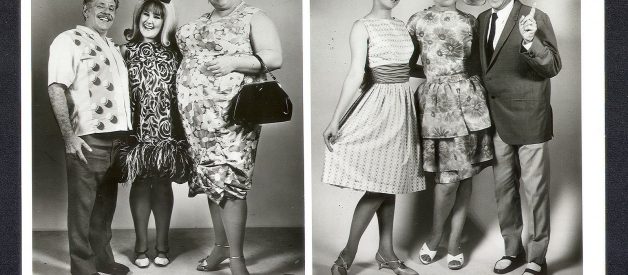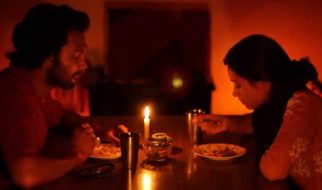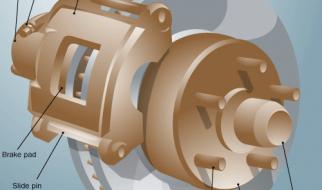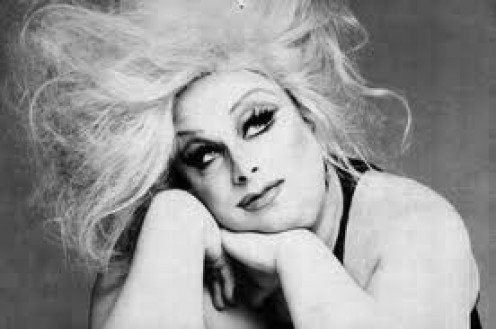
Harris Glenn Milstead, also known as the performer ?Divine,? has been described as ?one of the few truly radical and essential artists? of the 20th century. Divine became famous for his starring roles in many of John Waters? films, most notably Hairspray and Pink Flamingos. One month before his death in 1988, the film Hairspray was released and his dream of becoming a well-respected actor was finally coming to fruition. The critics praised his performance as the character, Edna Turnblad, and his agent, Bernard Jay, claimed he had never seen Divine happier. He even landed a guest role on the hit TV series Married?With Childrenbut passed away from an enlarged heart the night before filming. While Divine was famous for his drag persona, over-the-top, and at times gross antics, in real life this was not him. In fact, he was quoted as saying that his favorite part of drag was getting out of it and he only wore it to get paid. Although he came to embrace his homosexuality openly, he did not consider himself a drag queen, transgender nor transsexual. His ultimate goal was to be taken seriously as a male character actor and in later years would prove himself to be just that talented. Those who got to work with him saw past the outlandishness he exhibited on stage and in front of the camera and actually saw what the raw talent and natural sense of comic timing he possessed. Many who knew him described him as soft-spoken, kind, and generous.
Divine was only 42 at the time of his death. His body was found at the Regency Plaza Suites Hotel in Los Angeles, California on the morning of March 7, 1988. Weighing in at more than three-hundred pounds, he passed away in his sleep from cardiac arrest due to an enlarged heart. His body was flown to his hometown, Towson, Maryland, where it is buried in Hillpark Cemetery.
Early Years
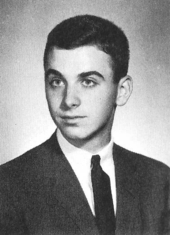
Harris Glenn Milstead, (who preferred being called by his middle name to distinguish him from his father) was born on October 19, 1945, in Baltimore, Maryland to Harris Bernard and Frances Milstead. Glenn was an only child, his mother having suffered two miscarriages prior to his birth. By 1945, his family was relatively well-off within their community and were socially conservative Baptists. Glenn would later describe his family as ?your upper middle-class American family.?
By the age of 12, Glenn and his parents moved to Lutherville, Maryland, a suburb of Baltimore. He attended Towson High School where he was bullied for being overweight and his perceived effeminacy. In a 1988 interview he recounts how the bullies in his school beat him badly on a daily basis. He kept this to himself for fear that things would only get worse until one day, when he had to go to the doctor for a physical, his bruises were noticed after he disrobed. After breaking down and speaking up about the abuse he was going through at school, his parents called the authorities and the vicious kids were expelled. Sadly this only made Glenn more unpopular in his school. Glenn was a very introverted and artistic teenager who loved painting and took an interest in horticulture who suffered so much from being self-conscious about his weight that, in the same interview mentioned above, he speaks of how he never went out until he was about sixteen years old ? around the time he met and became friends with future filmmaker John Waters ? and even then he always wore a rain coat to cover himself. He learned how superficial the world can be when, in his junior year, he finally went on a diet and lost eighty pounds and suddenly the people who wouldn?t speak to him before started talking to him and he was able to make friends. He describes that experience as a ?rude awakening at a very young age.?
After graduating high school in 1963, Glenn began attending the Marinella Beauty School where he learned hair styling which would benefit him in his career in show business. After graduating he worked at several different salons and in time his parents helped him buy his own salon in Townson hoping he would learn responsibility. He later quit hairdressing in 1970.
A couple of the friends Glenn began collecting throughout the years were filmmaker John Waters and David Lochary who would appear in several movies with Glenn/Divine later. Glenn and his friends easily embraced the counterculture and underground elements of Baltimore, frequenting the beatnik bars and clubs of the time. The nickname ?Divine? was given to Glenn by John Waters, himself. At the time, Waters was reading Our Lady of the Flowers by Jean Genet which was a controversial book about homosexuals living on the outskirts of Parisian society. Waters borrowed the name ?Divine? from a character in the book. In a 1973 quote Divine confirmed that he liked the name John gave him and that no one called him Glenn anymore.
It was in the 1970?s, while frequenting LGBT events and after Divine made his name known, that Waters would encourage Divine to make his drag persona more outrageous and gaudy, commenting that Divine should become the ?Godzilla of drag queens? which was in direct contrast with the beauty and glamour normally associated with drag queens.
?Divine? Movies
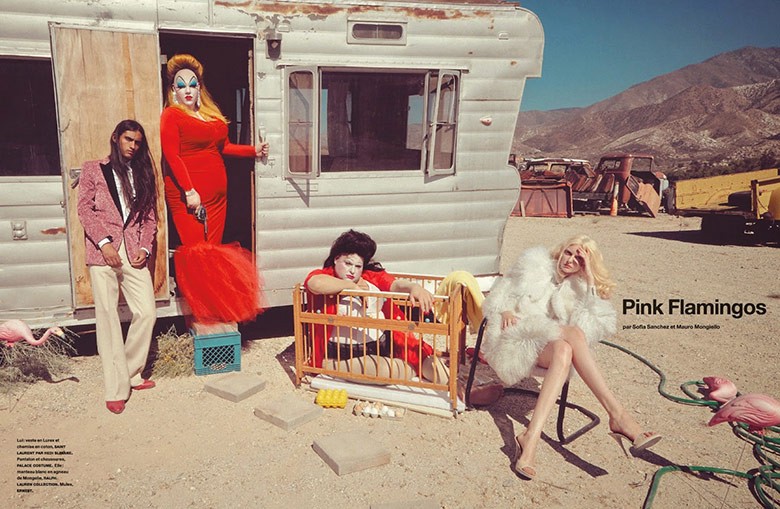
As an aspiring filmmaker, John Waters was purposefully intent on filming the trashiest movies in cinema history. He created the production company, Dreamland Productions, and his regular cast and crew became known as the Dreamlanders. Many of the original cast and crew consisted of his friends from Baltimore where his early films were shot. Some of the original Dreamlanders included Divine, David Lochary, Mink Stole and May Vivianne Pearce, among others.
The first film in which Divine appeared dressed as a woman was Roman Candles, filmed in 1966, in which he dressed as a smoking nun. The next movie where he appeared in drag was Eat Your Makeup, filmed in 1968. In this film he portrayed a fictionalized version of Jacquelin Kennedy who kidnaps fashion models and forces them to eat their own makeup. At the time, the films were not widely received but remained underground within the hippie subculture. Needless to say, Divine made a point of keeping his involvement with these low-budget underground films from his conservative parents who would not approve.
Divine continued to appear in drag in more of Waters?s films such as The Diane Linkletter Story in 1969, which was loosely based on the true story of Art Linkletter?s daughter, Diane, who had committed suicide the previous year. However, since this was a John Waters film and he had every intent on becoming known for ?bad taste films,? intent on shocking conservative society, The Diane Linkletter Story was filmed as a black comedy and not publicly released for legal reasons. It was however, initially screened at the first Baltimore Film Festival. Divine played the leading role of a young girl who rebels against her parents because they are against her dating a hippie; her character goes on to ingesting a large quantity of LSD and committing suicide.
Divine started getting more notoriety after appearing in Waters? films, Mondo Trasho and Multiple Maniacs. In Mondo Trasho, Divine played an unnamed blonde woman who runs over a hitchhiker. The Los Angeles Free Press, in their review of the film, referred to Divine as a three-hundred pound sex symbol. Multiple Maniacswas the first of John Waters films to receive widespread attention due to its controversial nature. Divine played the character ?Lady Divine? who runs an exhibit known as The Cavalcade of Perversion. In one scene Lady Divine ?pleasures? herself in a church using a rosary; in a another scene she kills her boyfriend and eats his heart.
The movie that inevitably shot Divine to stardom was Pink Flamingos. Another John Waters film which he admits was meant to be ?an exercise in poor taste,? Pink Flamingos is a story about Babs Johnson (Divine) a woman who owns the title of ?the filthiest person alive.? Mink Stole and David Lochary play a couple who are bent on challenging her to take that title of ?filthiest person alive? for themselves. Needless to say, there are several disgusting scenes in the movie but the most infamous scene is at the end where Babs eats fresh dog feces; not one of those fake plastic turds but a fresh one. When Waters first told Divine about how he wanted him to do that scene when filming first started Divine thought he was joking. A year later, when the time came to film the dog scene, Divine realized that Waters was not joking. Obviously, Divine was reluctant at first but Waters convinced him that this was his chance to become known and for Divine?s name to go down in movie history. He was not wrong! According to Divine, he and the filmmakers followed the dog for three hours until he finally had to relieve himself.
After gaining success among underground cinema fans, Pink Flamingos was picked up by New Line Cinema and gained a cult following. When his parents finally found out about his career and saw Pink Flamingos they were disgusted and eventually moved to Florida and didn?t speak to Divine for nine years.
Theater, Music and Hairspray
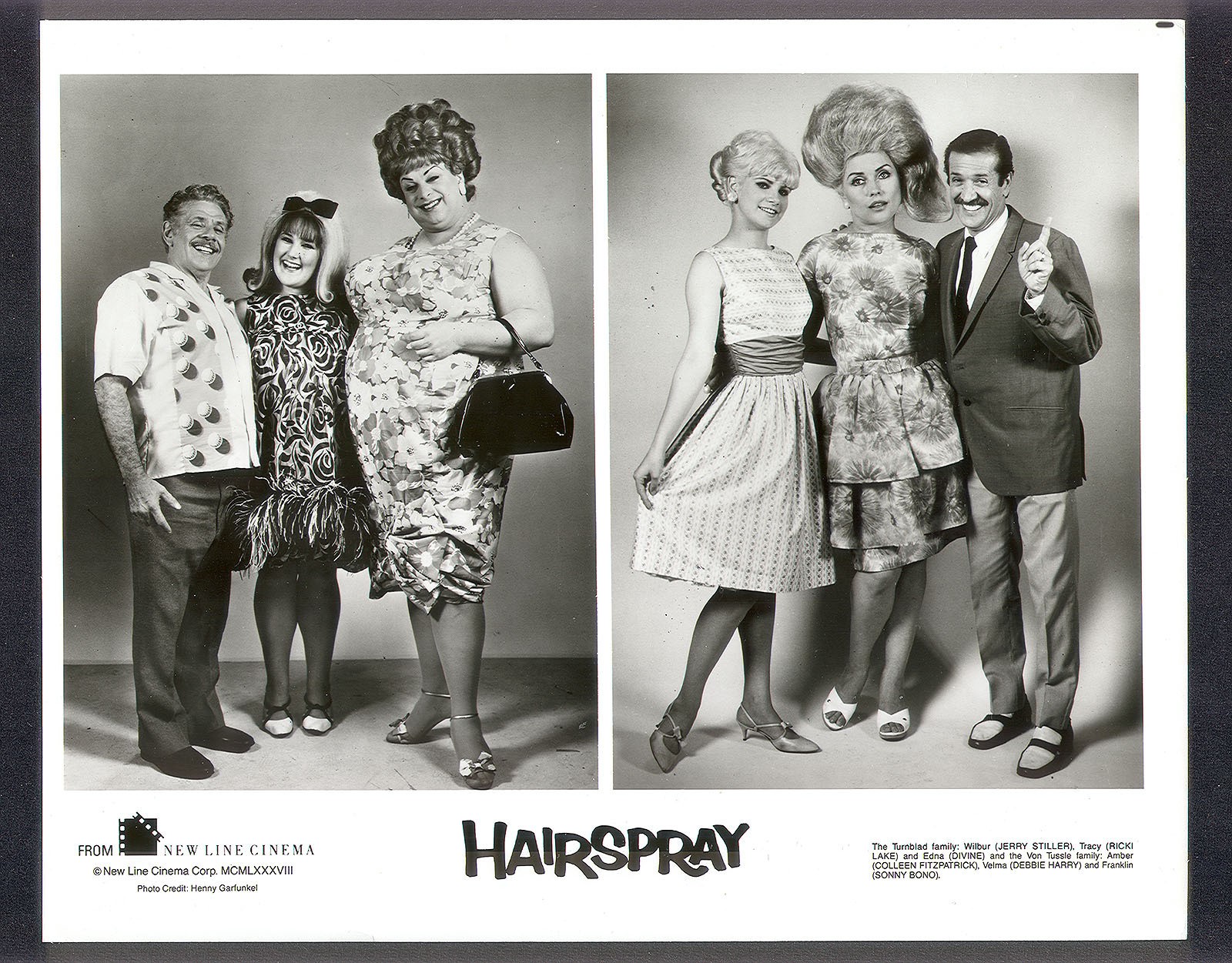
After Pink Flamingos, Divine and Mink Stole starred in a number of small-budget plays at the Palace Theater in San Francisco as part of a drag troupe called The Cockettes. In 1974, after returning to Baltimore, Divine continued filming in drag and appeared in the film Female Trouble then years later, Polyester, Lust in the Dustand Trouble in Mind, where he got to play the role of a man. After filming Female Trouble, Divine made his way back to theater work. He took a role in Tom Eyen?s comedy, Women Behind Bars, playing the prison matron, Pauline. The play gained success in New York City?s Truck and Warehouse Theater and was later taken to London?s Whitehall theater.
During the disco era Divine?s agent, Bernard Jay, recommended that Divine take advantage of his love of night clubs and start performing at them. He performed his first live show in 1979 at a gay club in Florida and was a hit and his career doing live performances took off. Divine described his stage performances as ?just good, dirty fun,? bantering with his audience members, often swearing at them and inviting audience members up to the stage to fondle them; his followers ate it up. In his own words ?if you find it offensive honey, don?t join in.? Before long, Divine saw the potential commercial success of including disco songs in his acts. He recorded a number of disco singles that became successful such as You Think You?re a Man, Shoot Your Shot and Love Reaction, among others. He even did a remake of Frankie Valli and the Four Seasons? hit, Walk Like a Man.
The 1988 movie, Hairspray, would prove to be a turning point in Divine?s career. In Hairspray, Divine played Edna Turnblad, the mother of Tracy Turnblad, played by Ricki Lake. Tracy is a chubby teenager in the 1960?s whose dream it is to become a dancer on a local television show and who also fights against racial segregation. Divine also played a second role in Hairspray as the racist television station owner Arvin Hodgepile. Not only did John Waters succeed in creating a commercially accepted film, but according to many, Divine was the show stealer despite Ricki Lake being the main character. Hairspray marked Divine?s breakthrough into mainstream cinema, a goal for which he had been striving for years.
His final role was in the 1989 comedy horror movie Out of the Dark, where he played a foul-mouthed policeman named Detective Langella investigating a murderer who dresses as a clown. Out of the Dark was released after his death.
Death of a Legend
On March 6, 1988, Divine spent the day at Sunset Gower Studios rehearsing for his guest appearance the next day as Uncle Otto on Married?With Children. March 7 should have been a big day for him. That evening he enjoyed dinner with friends at the restaurant of the Regency Plaza Suites Hotel where he was staying. Divine suffered from an enlarged heart due to his severe weight problem. It is estimated that he was between 320?370 pounds and on the morning of March 7, 1988 his lifeless body was found by Bernard Jay. He passed away from cardiac arrest in his sleep. Thanks to Bernard and some of Divine?s friends who were present as Divine?s body was being removed from the hotel, the press was unable to get pictures of his lifeless body.
Divine?s legacy lives to this day; he has been a great inspiration to many artists. Portraits of Divine have been painted by artists including David Hockney and Andy Warhol. In Disney?s version of The Little Mermaid, the animation of Ursula the Sea-Witch was inspired by Divine. Many, including myself, believe Divine/Harris Glenn Milstead would have enjoyed a long successful career as the talented and funny male character actor he was and always wanted to be if he hadn?t been taken from us so soon.
***Brenda Thornlow is a published author from Brooklyn, NY. Her work can be found at Amazon, Barnes & Noble, and Smashwords.***
